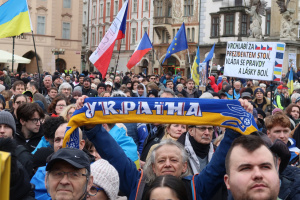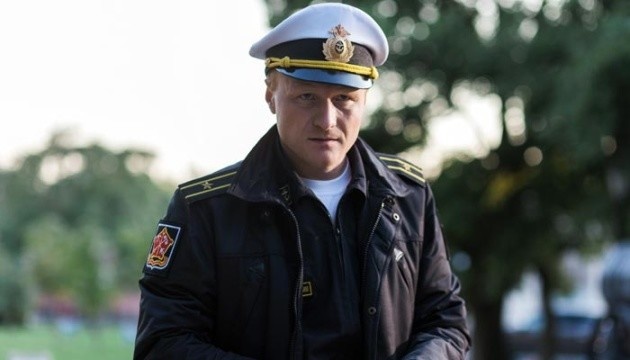
Why Russian cinema can’t exist without propaganda and manipulations
Ukrainian actor Vitalii Salii was recognized best actor by the National Film Critics Award "Kinokolo-2021."
The board that chose the winner seems to have been unfazed by the fact that earlier this year, the actor had played a Russian navy officer in the Russian TV series Deep Bay.
In his defense, the actor claims “there is no storyline in the series that would be anti-Ukrainian, political, or glorifying the aggressor army.” However, does Russian cinema really exist without propaganda and distorted reality?
Across social media, Ukrainians criticized the actor for starring in the Russian series amid Russia's armed aggression against Ukraine, which has been going on for eight years already.
Salii responded to all critics, while not denying participation in the Russian project:
"Everyone who knows me at least a little is aware that I always publicly condemn the annexation of the Ukrainian Crimea and the war in Donbas, which is why I don’t act in films whose plot, script, final product, or crew in any way justify the war in eastern Ukraine, the annexation of Crimea, or promote contempt for Ukrainians (or the Ukrainian language). This is a condition of my cooperation with any project,” he wrote on Facebook.
There is no anti-Ukrainian storyline in the show, the actor stressed, adding that the main thing is the message it conveys. However, the actor stopped short of elaborating on what exactly the message is.
It should be reminded that the Ukrainian law prohibits distribution and airing in Ukraine of films promoting or carrying propaganda of the aggressor power’s government agencies or their specific actions which create a positive image of the aggressor. Although the law does not explicitly bar Ukrainian actors from participating in the producition of such films, such work contributes to the very creation and distribution of the relevant content.
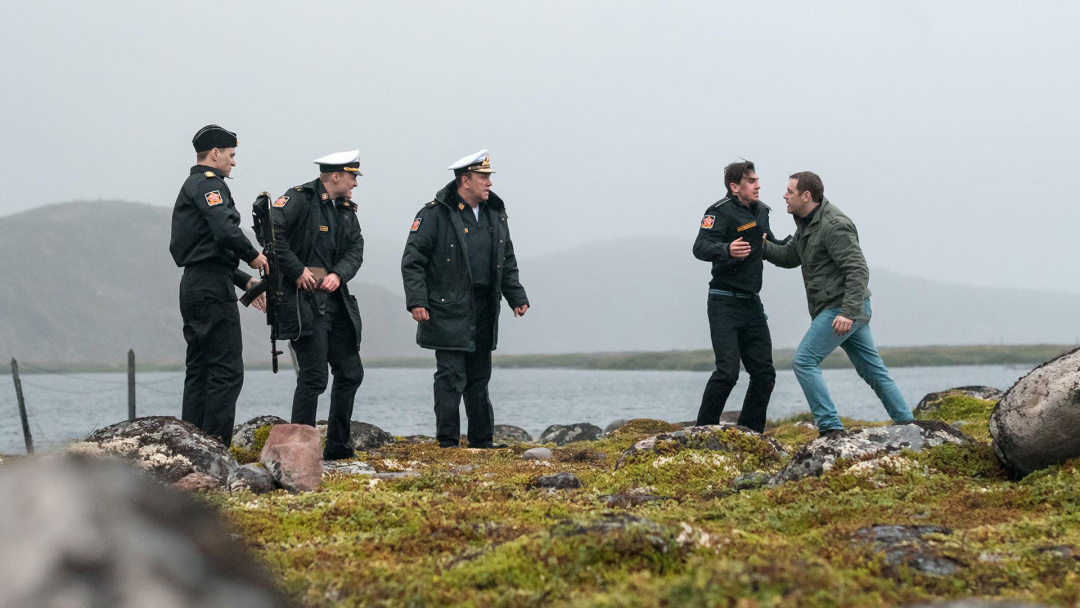
Returning to the “message” Salii mentioned in justifying his participation in the filming, we will tell you about the series’ finale. According to the plot, the main villain is Russia’s rear admiral responsible for the theft of new equipment from a submarine and the death of the crew as a result of a staged mine detonation set to cover up the theft. However, despite the character being a criminal, he is buried with military honors, with is funeral being set up as a praise of a real hero.
The viewer is left to wonder how come it was even possible. The fact remains in place – not only is the putrid crime of a high-ranking military officer concealed, the perpetrator is declared a hero. It would seem that this is an important plot twist and that a question requires an answer... But for some reason, it is left unaddressed.
Even if the Russian film doesn’t openly promote anti-Ukrainian narratives, it can impose on the audiences a distorted worldview.
The said show is typical of the Putin-era cinematic art. It depicts a strong commander who is forgiven even despite complicity in a mass killing, as well as portrays the fall of the Soviet Union as the source of all bad things in the lives of the Russians.
Gangsters reigning over a seaside town are portrayed as a rudiment of “ancient evil” from the 1990s, which arose on Soviet ruins. There seems to be no modern-day evil in Putin's Russia unless it’s some minuscule stuff.
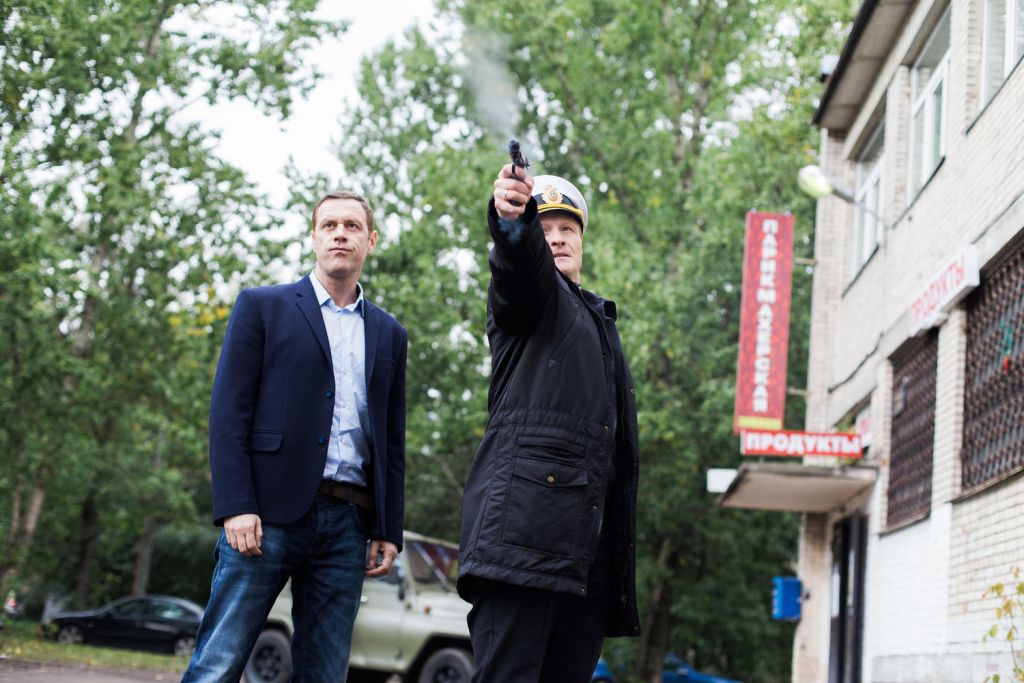
The only actual case in the history of modern Russia where the entire submarine crew died was the Kursk submarine accident in August 2000. One of the reasons behind the tragic outcome of the accident was Putin's actions as president, such as remaining reluctant to accept foreign aid in emergency response until it was too late. It is to this accident that his cynical response to U.S. journalist Larry King refers. “It sank,” Putin told the host when asked what happened with the Kursk sub.
In the series, the subramine crew dies in the late 1990s, before Putin was elected president. So it’s the Yeltsin-era gangs that are to blame for the incident. This way, history gets manipulated through fiction.
Chief director of Russian cinema
Back in 2008, Putin became a “chief director of Russian cinema.” At the time, a government council was set up for the development of domestic cinema, of which Putin took the helm as prime minister. Putin said “the potential of cinema as the most important tool of upbringing, education, and formation of values in society remains underutilized.” Critics described it as a return to the Leninist principle “of all the arts, cinema is the most important to us,” with all the same implications: ideological control coming back to the world of cinema.
Since then, more and more films have been made in Russia every year, with the government pouring billions into the industry, while the end product was increasingly becoming more akin to propaganda than actual art.
According to journalist Vladimir Tsybulsky, the era of Putin cinema started from The 9th Company movie filmed in 2005. “Turns out you can simply with the Afghan war with a single film. It was clear that this was just the beginning. Only a few years have passed. Just look at the daily TV programs on any TV channel. Any movie poster… It’s all really not that funny... Putin’s cinema brought the oh-so-necessary peace and grandeur into the souls of the average Russians.”
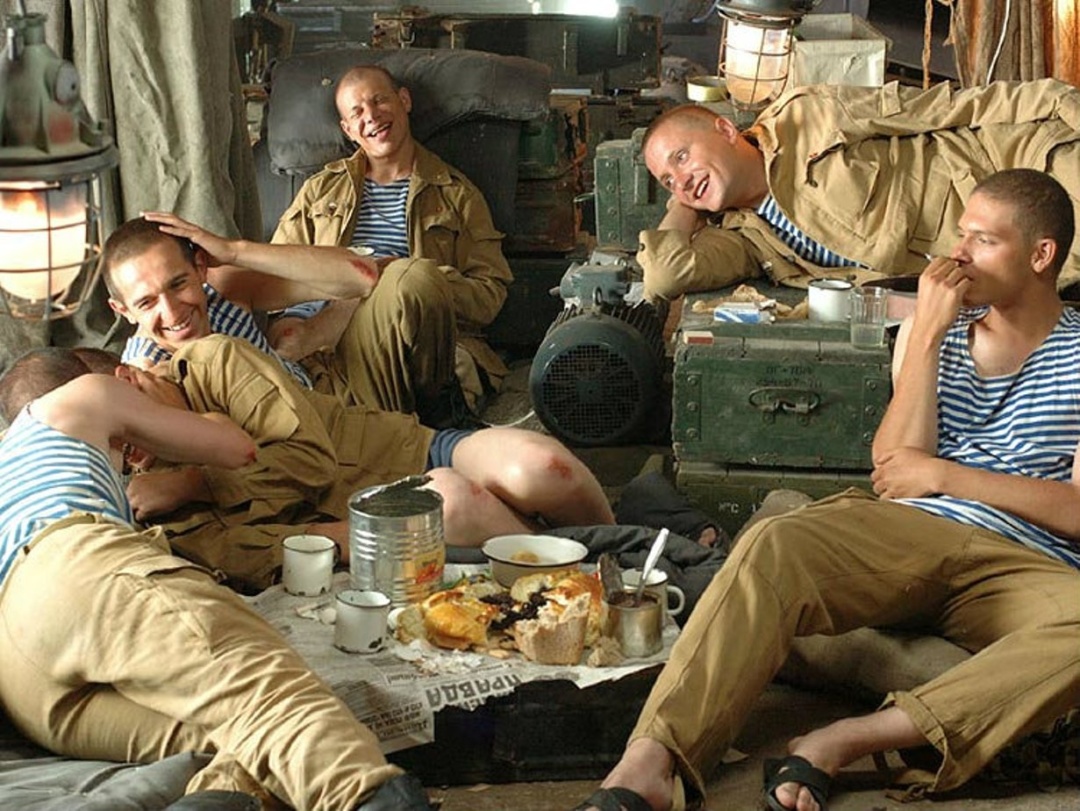
A snap from The 9th Company movie
Journalist Andrei Arkhangelsky refers to Putin's cinema as a "new socialist realism," comparing it to Stalin’s cinema.
“You can’t say that Stalin-era films varied too much. They could differ in style, in the degree of the author’s talent; but you can’t imagine they could be different in content or set of ideas. You can’t say that Stalin’s movies had their own vision. They were all about one thing; regardless of genre, it was a total eulogy to the Soviet government,” Arkhangelsky writes.
Even “the wildest Russian movies,” he said, “adhere to unspoken loyalty codes.” Producers want to show to the government that they can be trusted. As an example, he cites the first 2013 Russian disaster film, Metro. The story tells of a group of people trying to survive following an accident. They have almost reached the surface before suddenly their effort fails as they fall back into the water. The characters are unable to save themselves without the government’s help.

A snap from Metro movie
Eight features of “correct” Russian cinema
Arkhangelsky offers eight examples of “loyalty codes”: what’s mandated and what’s unacceptable in Russian cinema:
1) The main code is the suggestion that the authorities in Russia are an absolute, unchanging, and uninfluenced entity. The authorities can bring upon people horror, fear, even disgust, while they can never be ridiculed. This would be the worst sin. For example, in the 2018 Russian comedy President's Holiday, which was promoted as “bold,” anyone is ridiculed, except for the Russian president. On the contrary, the film shows that if you give power to anyone else, this will saw chaos.

A snap from President's Holiday movie
2) The main evil in films is now the conditional “West,” which has “always” sought to ruin Russia. The only time in history when Russia “showed some weakness” was the 1990s, and blaming this period for everything is a sort of a ritual in Russian film industry. All the worst things happened back then or stem from that time.
3) The very idea of private property is also tabooed in Russian movies and TV series. As a result, in 20 years, the film industry has managed to keep secret from most viewers that capitalism has in fact long come to Russia.
4) Whatever the era the story unfolds in, law enforcement or security agencies play a key role in a film.
5) It is impossible to imagine a Russian movie about civil society being able to achieve something on its own today. The newer films also insist on the idea of the fundamental impotence of society: “you can’t do anything on your own, you will only ruin things.”
6) Even if a Russian TV series or film is based on an actual event or character, it is absolutely wary of telling the true story. Producers claim the truth seems boring to them from the standpoint of art, but in reality, it’s just ideologically dangerous.
7) Patriotic films today are also uncontrollably taking up the form of aesthetic fascination with violence and death as such. The only thought that imposes on patriots today is that the best thing you can do for the country is to sacrifice your life for its sake.
8) Love is meant to humanize the most terrible historical periods, as well as compensate for any flaws of directors or screenwriters. In fact, on the Russian screen, love is a sort of a cover-up.
The characters in Russian films may fight against rather recognizable enemies of Vladimir Putin. In the Major Thunder: Plague Doctor action film, released this spring, a police officer is on a hunt for the main antagonist, a corruption whistleblower who operates online and sets up street protests. There is an obvious association with Aleksei Navalny, a Russian opposition figure who was first poisoned and then sentenced to a prison term.

A snap from Major Thunder Plague Doctor movie
The characters may also embody an authoritarian type of leader/father: they are the only ones who know how to make things better for people depending on them. Also, they employ violence to impose their vision (yet, they are violent to others, not themselves). In such films, the cruelty of those in power is always about care, while tyranny is an ingenious plan calculated several steps ahead. They are also an inevitable part of such movies. Does your child suffer from cerebral palsy? Perhaps, it would be a good idea to leave him out in the woods: if they don’t die, they may start walking on their own, like in the Temporary Difficulties movie.

A snap from Temporary Difficulties movie
So, what can unite the “iPhone Russia” and the grassroots Russia with its weird fetish about prisoners’ music and culture? There is a peculiar way Russian cinema tackles the issue of a clash of generations and cultures, one of the favorite subjects of international cinematographic art. In a Russian movie, a SWAT team deploys and knocks everyone down to the floor, face down, no matter the social status so any controversies get erased and everyone calms down.
In Zack Snyder's 300, the battle of the Greeks with the Persians at Thermopylae was a “clash of civilizations”: a struggle of “eastern centralism and collective serfdom” against the “idea of a free citizen of an autonomous polis.”
Russia, on the other hand, offers the idea of authorities that, despite being cruel to its people, remain indisputably wise. And this idea can manifest itself in various forms and shapes, even in films that seem to have nothing to do with politics.
Center for Strategic Communication and Information Policy


